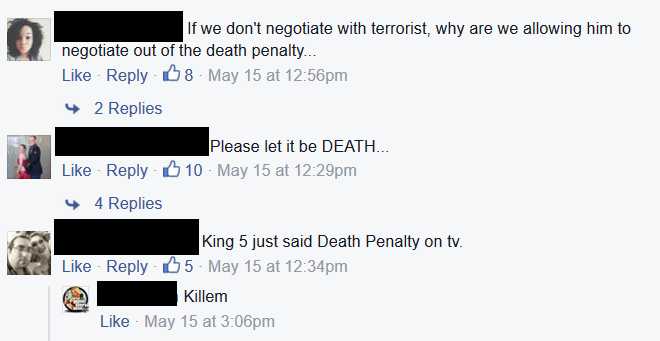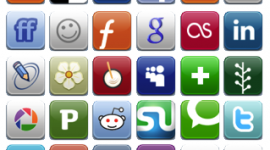The Era of Social Shaming and Passing Judgment
It used to be just YouTube. Disgusting comments trolling others to ” go kill yourself”, or “that’s gay”, and/or “they should kill that person”, and “you should be raped”. Since social media has become so prevalent, these comments have spilled over to every corner of every social network and it only takes a few minutes to discover the darkside. Folks are so quick to pass judgement on others; becoming witness, judge, jury, and executioner all in one sentence. It’s a shame.
Not sure what I’m referring too?
Cruise over to YouTube and read comments on virtually any video.
The other day, the video surfaced of the Starbucks employee ranting on a customer. The video’s comments are full of judgement and, my guess is, people “think” they know what is “really” going on.
Here are just some of YouTube comments (the actual safe-for-work ones)
The video doesn’t show the entire encounter. Yet, the comments come so easy to YouTubers and passing blame and judgement ensues.
When did society become witness, judge, and jury all-in-one?
Facebook. The place of happiness and home of the “Like”. Since Facebook doesn’t have a dislike button, because Facebook is that happy place, people, with real names, are in no shortage of judgements. Here is an example post the jury decision on Dzhokhar Tsarnaev.
It took all of 5 seconds to grab those screenshots and examples like this could go on-and-on.
While I’m not above punishing criminals for their deeds, it’s not for me to evoke justice.
As business owners and citizens of planet Earth, we have to be mindful how we conduct ourselves online. Regardless if we think our comments are “harmless”.
In addition, our behavior, on social media, directly reflects who we are and people will gauge our character accordingly. It’s not new news that employers use social media when reviewing applicants, as well as current employees.
Whether we agree with the practice or not, its happening.
In another example, let’s go back to YouTube for a podcast discussing this very topic of shaming, horrific tweets, and a victim’s response.
In UnMarketing’s, who are my heros, UnPodcast #65: When it’s Right to Name and Shame People Scott & Alison share their thoughts regarding shaming. The actual discussion starts at 9:27 if you want fast forward.
In a video example, Scott & Alison discuss Ashley Judd’s lawsuit regarding all the hate, violent, and sexually violent tweets sent to her on Twitter. Judd’s response was to file lawsuits against the offenders. Good for her! People should be held accountable for their actions.
How do people rationalize their behavior telling people they should be raped? What the hell is wrong people?
Watch the video and let us know how you react if you, someone you loved, or an employee received/delivered similar messages.
Scott then goes on to ask Alison “should these people loose their job?”.
How would you, as an employer respond knowing your employee, or employees, act in such a manner? Is that employee’s off-time a concern of the employer they work for? Should the people sending threatening tweets to others, whether they be public figures or not, loose their job? Or, have other implications in their personal life?
My Opinion: Yes.
As business owners, employees are the face of our business. Employees work with customers day-in and day-out and having an person conducting themselves in a manner not becoming of a business’s culture can be detrimental.
I love Scott’s description of these unbecoming tweets, “in human”.
Since when did society think it’s appropriate to act this way towards others online? Those threats, if made in person, are criminal.
As we all interact in the digital and social media age, we have to remember that we are all people. People with feelings, people with rights, and people with the law on our side.
Be careful online because everything is public, everything.







